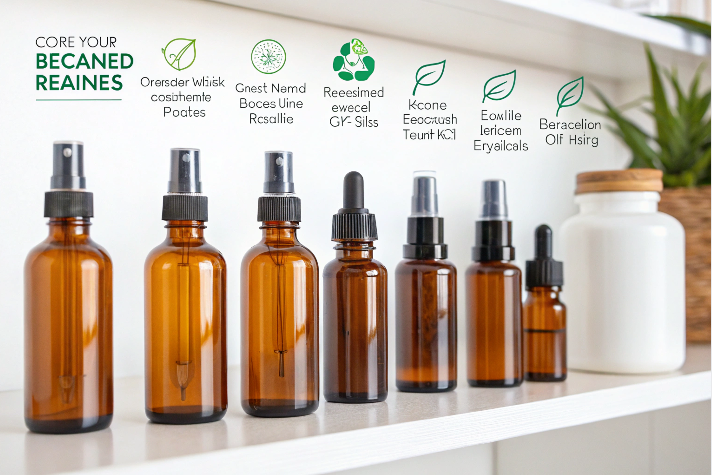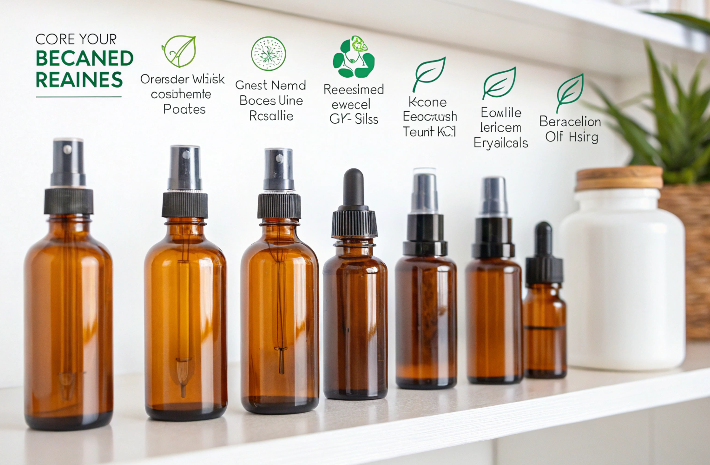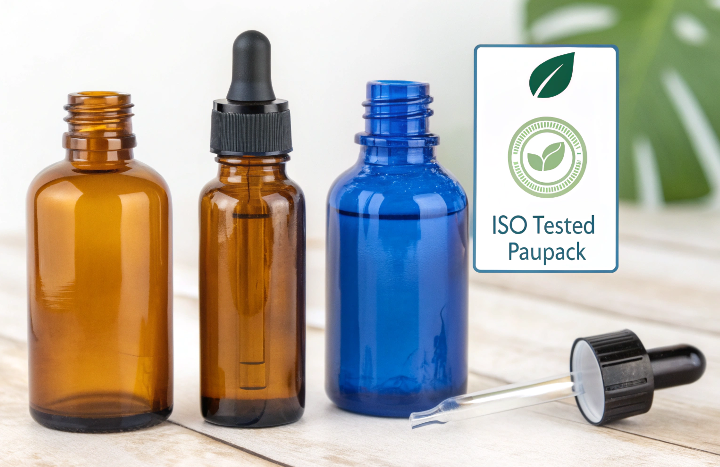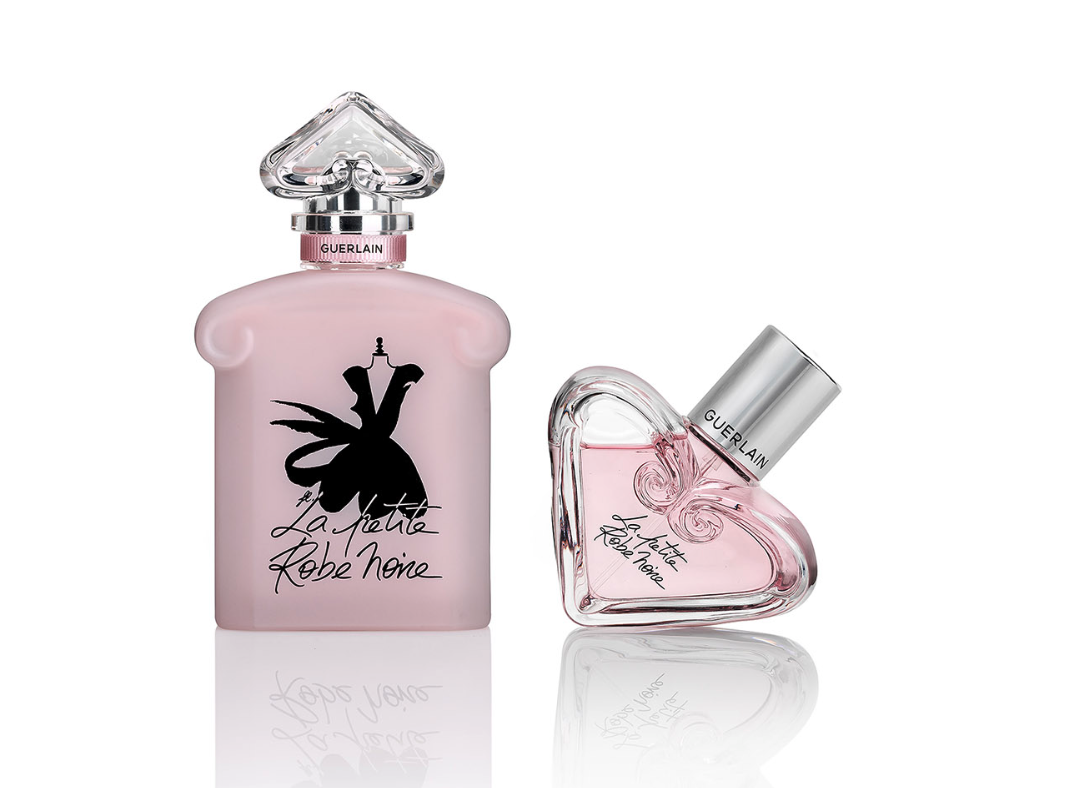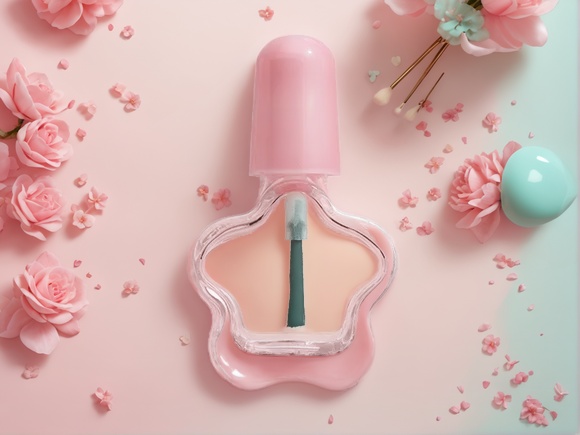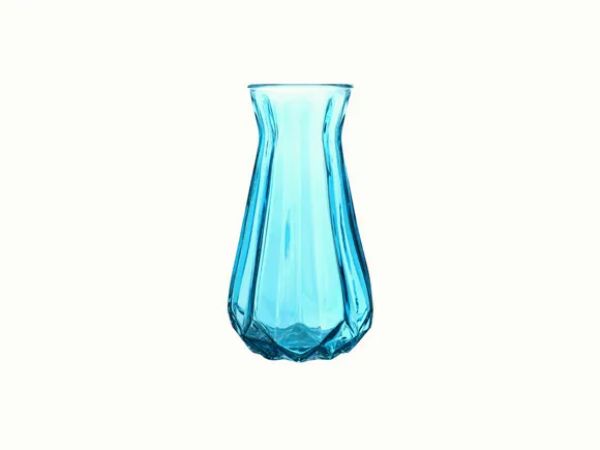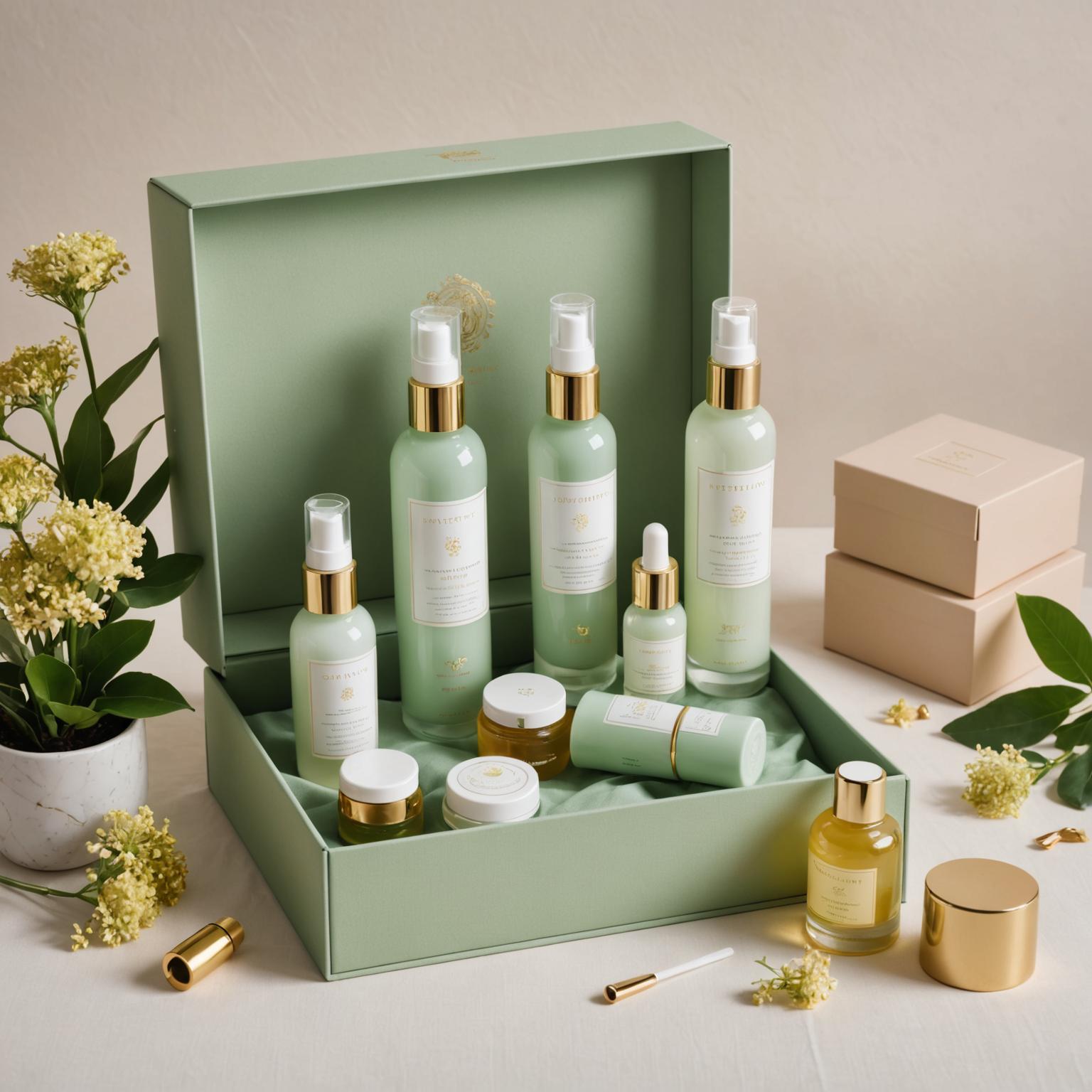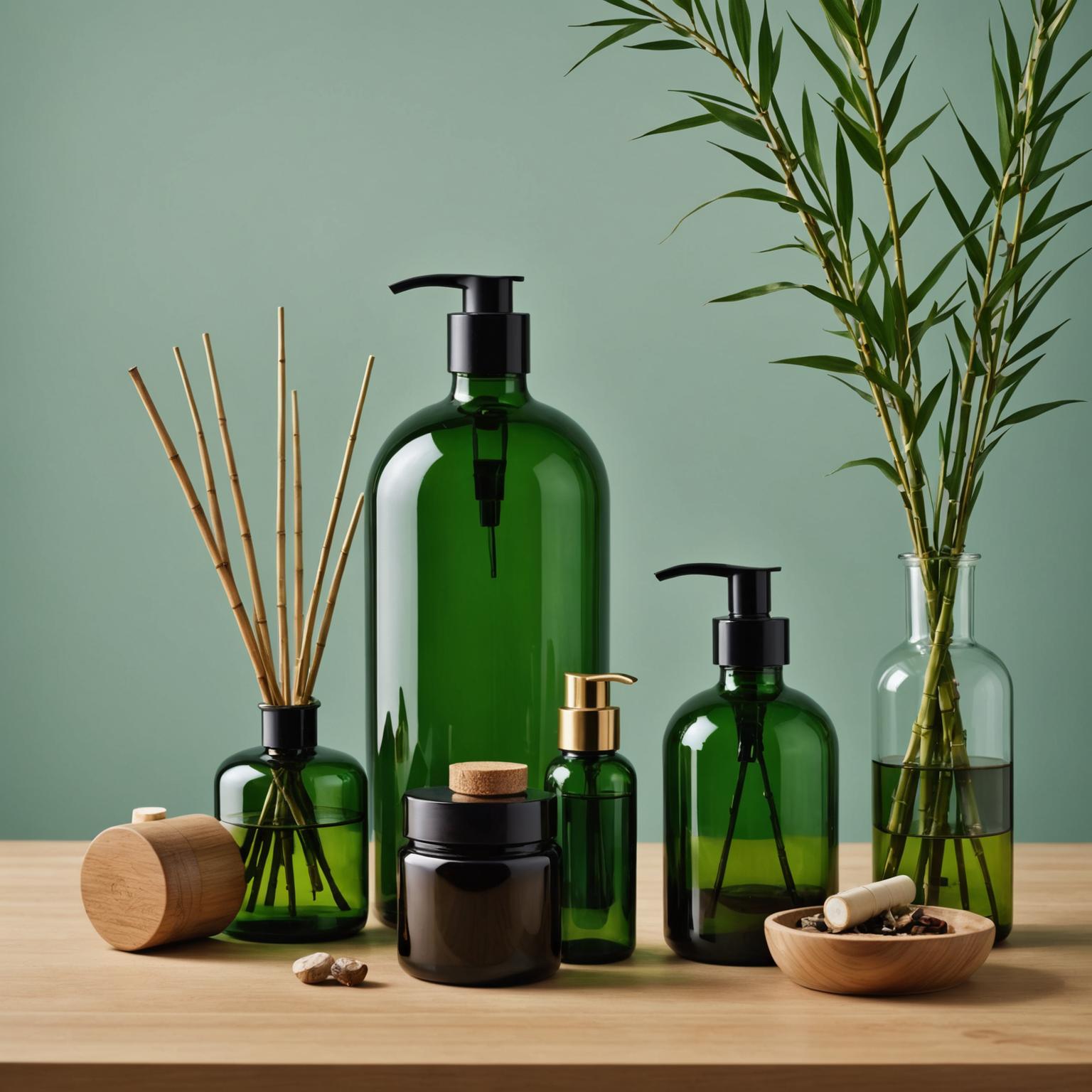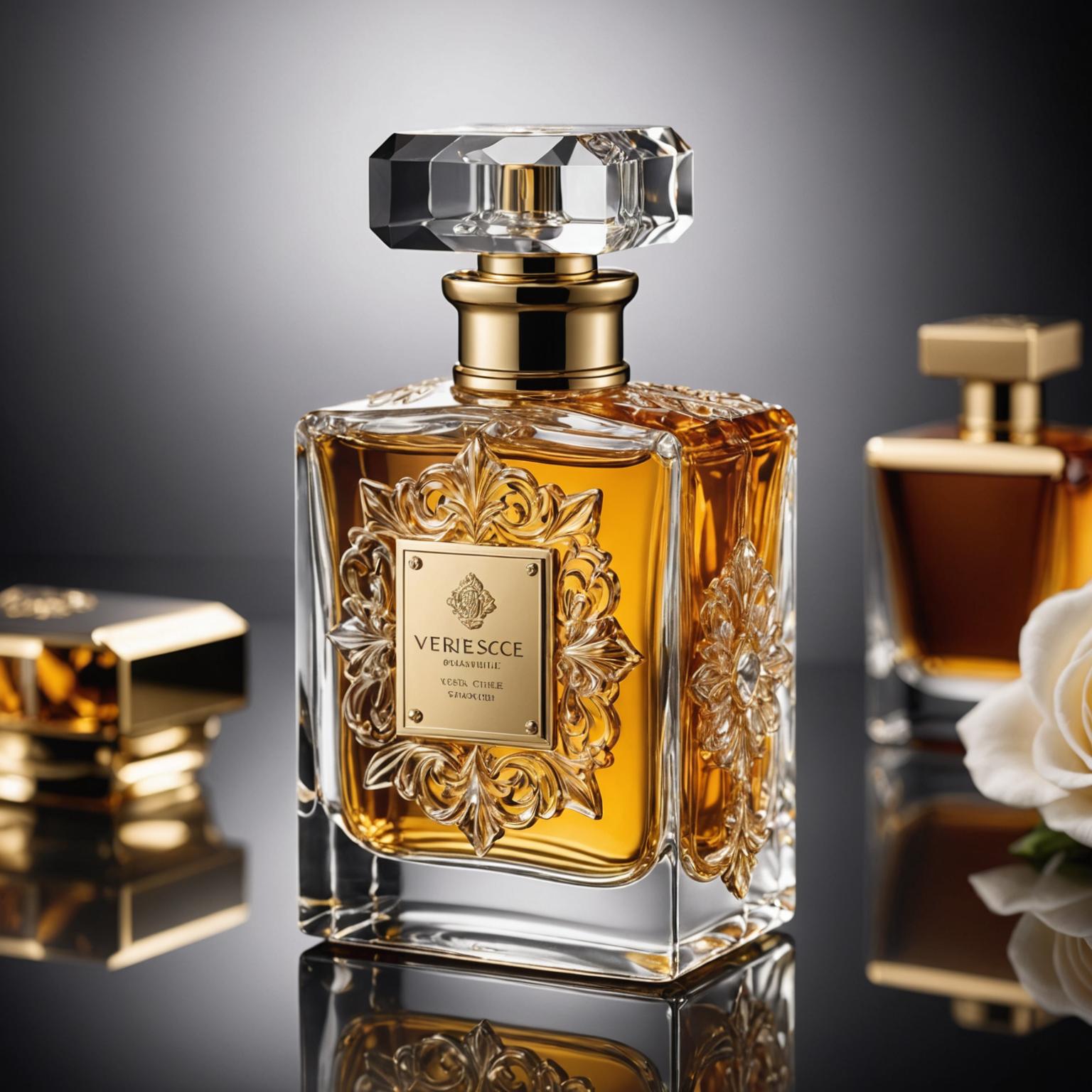As brands and consumers alike prioritize sustainability, the question arises: What should we do with all those beautiful glass bottles after the oil runs out?
Glass essential oil bottles can be repurposed into travel kits, DIY blends, home décor, skincare refills, and more. With the right cleaning and creativity, they become assets, not waste.
Reusing essential oil bottles isn’t just an eco-conscious habit—it’s a branding opportunity. Whether you’re a beauty startup, aromatherapy seller, or sustainability-focused brand, promoting bottle reuse can enhance customer engagement and environmental credibility. Let’s explore how.
Introduction to Glass Bottles
Glass bottles have been a popular choice for storing liquids, including olive oil, for centuries. When it comes to storing olive oil, glass bottles are an excellent option due to their non-porous and non-reactive nature. This means that the oil won’t come into contact with any chemicals or materials that could affect its flavor, aroma, or nutritional value. By choosing glass bottles, you ensure that your olive oil remains as fresh and delicious as the day it was bottled.
Understanding the Material
Glass is a durable and sustainable material that can be recycled repeatedly without losing its quality. Dark glass bottles, in particular, are ideal for storing olive oil as they protect the oil from UV rays and light exposure, which can cause it to become rancid. By storing olive oil in a dark glass bottle, you can help preserve its flavor, aroma, and nutritional value. This makes dark glass bottles a superior choice for maintaining the quality of your olive oil over time.
What can you do with old essential oil bottles?
Once your essential oil bottle is empty and cleaned, the creative possibilities are endless.
Old essential oil bottles can be reused for new oil blends, travel-sized products, room sprays, diffuser oils, and decorative projects.
Top 10 Creative Uses for Empty Essential Oil Bottles
-
DIY Roller Blends
Add carrier oils and leftover essential oils to create custom roll-on blends. -
Mini Room Sprays
Repurpose spray bottles into lavender linen sprays or citrus air fresheners. -
Travel Kits
Fill with shampoo, face oil, or toner for trips—perfect for 5ml and 10ml bottles. -
Diffuser Oil Refills
Store reed diffuser refills in dark glass to extend shelf life. -
Nail Oil or Cuticle Serums
Add jojoba oil + essential oils for a handy nail serum. -
Emergency Perfume Bottles
Add carrier oil + a drop of favorite perfume for purse-ready fragrance. -
Dropper Bottles for Skincare Oils
Refill with rosehip, argan, or tamanu oil for daily use. -
Stain Removers or Cleaning Oils
Use for highly concentrated blends like lemon oil for gum or ink removal. -
Label Samples or Formulas
B2B brands can reuse for formula testing or demo kits. -
Craft Projects or DIY Decor
Paint, frost, or decorate bottles for use as tiny vases or fairy lights.
What can I do with old glass serum bottles?
Serum bottles usually come with pipettes or pumps, which makes them ideal for reuse in beauty and personal care routines.
Glass serum bottles can be reused for facial oils, cuticle treatments, hair serums, tinctures, or even ink for calligraphy pens.
Ideas for Reusing Serum Bottles
1. Custom Face Oil
Add rosehip oil + vitamin E + a few drops of essential oil.
2. Hair Oil Drops
Mix argan oil + rosemary essential oil for scalp massage.
3. Under-Eye Roller Serum
Use roller heads for lightweight caffeine or green tea eye serums.
4. Custom Foundation Drops
Use old serum bottles to carry mixed foundation or tinted moisturizers.
5. Natural Remedies
Fill with herbal tinctures, liquid supplements, or oral sprays.
6. Brand Demo Bottles
Great for private label brands to showcase new product formulas.
7. Beauty Fridge Storage
Serum bottles are ideal for vitamin C or hyaluronic acid stored cold.
At PauPack, we offer refill-friendly bottles with easy-to-clean droppers, perfect for zero-waste skincare lines and refill bars.
Why are essential oils in glass bottles?
Understanding the original function of these bottles helps you reuse them more effectively—and safely.
Essential oils are stored in glass bottles because they are highly reactive and can break down plastic. Glass prevents chemical reactions, maintains purity, and blocks light exposure.
The Science Behind It
Essential oils contain volatile organic compounds that:
-
Break down under light, heat, or air
-
Corrode or dissolve plastic
-
Lose therapeutic benefits if exposed to UV rays
That’s why they’re packed in:
-
Amber bottles: block 90%+ UV light
-
Cobalt bottles: spa-friendly and partially UV resistant
-
Thick glass walls: prevent leaching and contamination
What Makes Glass Reusable
Unlike plastic, glass doesn’t absorb scent or chemical residue if cleaned correctly. That’s why these bottles are so perfect for:
-
Refills
-
Custom DIY formulas
-
Long-term liquid storage
At PauPack, we use ISO-tested amber and cobalt glass, designed to withstand cleaning, reuse, and even mild sterilization—ideal for circular beauty packaging.
Benefits of Using Glass Bottles
Using glass bottles to store olive oil has several benefits. Not only do they protect the oil from light and heat, but they also prevent oxidation, which can lead to a shorter shelf life. Glass bottles are also easy to clean and maintain, making them a practical choice for everyday use. By using glass bottles, you can ensure that your olive oil stays fresh and flavorful for longer, enhancing your cooking and dining experiences.
Why Glass is Preferred
Glass is the preferred material for storing olive oil because it is non-porous and non-reactive. This means that the oil won’t absorb any flavors or odors from the container, and it won’t react with the material to produce any unwanted compounds. Additionally, glass bottles are eco-friendly and can be recycled, making them a sustainable choice for storing olive oil. By choosing glass, you are not only preserving the quality of your olive oil but also making an environmentally conscious decision.
What is the 30/50/20 rule for essential oils?
While not universally known, the 30/50/20 rule is a blending guideline used in aromatherapy to create balanced and effective essential oil formulas.
The 30/50/20 rule refers to the blending ratio: 30% top notes, 50% middle notes, and 20% base notes, creating harmonious and lasting essential oil blends.
Breaking Down the Rule
|
Note Type |
Role |
Examples |
|---|---|---|
|
Top Notes |
First impression, evaporate quickly |
Lemon, peppermint, bergamot |
|
Middle Notes |
The “heart” of the blend |
Lavender, rosemary, geranium |
|
Base Notes |
Slow to evaporate, grounding |
Patchouli, sandalwood, frankincense |
So, for a 10ml blend:
-
3ml should be top notes
-
5ml middle notes
-
2ml base notes
Why This Matters for Bottle Reuse
If you’re reusing bottles for DIY blending, understanding scent layering helps create:
-
Long-lasting perfumes
-
Stable diffuser blends
-
Therapeutic combinations for sleep, energy, or focus
It also helps prevent waste—since you’re balancing volatile oils to reduce quick evaporation.
At PauPack, we guide many of our clients—especially new wellness brands—on formulation basics and bottle sizing to match the 30/50/20 strategy. Our 5ml and 10ml dropper bottles are perfect for these balanced blends.
BONUS: Tips for Reusing Bottles Sustainably
Cleaning Checklist Before Reuse
-
Soak in soapy hot water
-
Rinse with vinegar or isopropyl alcohol
-
Air dry completely (upside down)
-
Label accordingly
-
Avoid cross-contamination (especially from strong scents like eucalyptus or cinnamon)
Add Value for Your Customers
-
Include a refill guide in your packaging insert
-
Offer DIY recipes in newsletters or on your website
-
Sell refill pouches with instructions to reuse old bottles
Build a Circular Packaging Strategy
At PauPack, we help brands build full reuse models:
-
Modular components (replaceable caps or pumps)
-
Silk screen labels (oil- and water-resistant)
-
Bamboo caps for a premium natural look
-
QR codes linking to refill or reuse tips
Environmental Benefits of Repurposing
Repurposing glass bottles to store olive oil has several environmental benefits. By reusing glass bottles, we can reduce the amount of waste sent to landfills and conserve natural resources. Glass bottles can be recycled repeatedly without losing their quality, making them a sustainable choice for storing olive oil. This practice helps in reducing the environmental footprint and promotes a circular economy.
Positive Impact on the Planet
The production of new glass bottles requires raw materials and energy, which can have a negative impact on the environment. By repurposing glass bottles to store olive oil, we can reduce the demand for new glass production and minimize waste. This can have a positive impact on the planet by reducing greenhouse gas emissions and conserving natural resources. Furthermore, using glass bottles to store olive oil can also help to reduce the use of plastic containers, which can contribute to pollution and harm the environment. By choosing glass bottles, we can help to keep our planet clean and reduce our carbon footprint.
Conclusion
Glass essential oil bottles are more than containers—they’re versatile, durable tools waiting for a second life. By encouraging repurposing and providing refill-friendly designs, your brand can inspire customers to make conscious choices that reduce waste and deepen brand loyalty. At PauPack, we believe every bottle deserves more than one journey.




